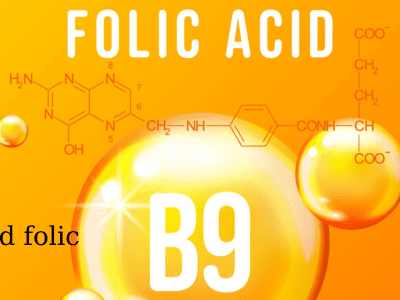Tuổi thọ được xác định bởi một số yếu tố, bao gồm các yếu tố di truyền, môi trường và lối sống. Một yếu tố chính ảnh hưởng đến tuổi thọ là sự phát triển của các rối loạn thoái hóa như bệnh tim mạch, tiểu đường, bệnh thận và bệnh gan, đặc biệt khi xảy ra kết hợp những bệnh trên. Trong bài viết này, chúng tôi xem xét vai trò tiềm năng của việc bổ sung coenzyme Q10 (CoQ10) để phòng ngừa hoặc kiểm soát các rối loạn này. Do đó, các thử nghiệm lâm sàng ngẫu nhiên có đối chứng đã cho thấy bổ sung CoQ10 hoặc CoQ10 cộng với selen làm giảm tỷ lệ tử vong khoảng 50% ở những bệnh nhân mắc bệnh tim mạch, hoặc ở người cao tuổi bình thường. Tương tự, bổ sung CoQ10 giúp cải thiện kiểm soát đường huyết và rối loạn chức năng mạch máu ở bệnh tiểu đường type II, cải thiện chức năng thận ở bệnh nhân mắc bệnh thận mãn tính và giảm viêm gan ở bệnh nhân mắc bệnh gan nhiễm mỡ không do rượu. Vai trò có lợi của bổ sung CoQ10 trong các rối loạn trên được cho là kết quả của sự kết hợp chức năng tạo ra năng lượng tế bào, chất chống oxy hóa và chất chống viêm.
1. DuGoff E.H., Canudas-Romo V., Buttorff C., Leff B., Anderson G.F. Multiple chronic conditions and life expectancy: A life table analysis. Med. Care. 2014;52:688–694. doi: 10.1097/MLR.0000000000000166. [PubMed] [CrossRef] [Google Scholar]
2. Hargreaves I.P. CoQ10 as a therapy for mitochondrial disease. Int. J. Biochem. Cell Biol. 2014;49:105–111. doi: 10.1016/j.biocel.2014.01.020. [PubMed] [CrossRef] [Google Scholar]
3. Fan L., Feng Y., Chen G.C., Qin L.Q., Fu C.L., Chen L.H. Effects of coenzyme Q10 supplementation on inflammatory markers: A systematic review and meta-analysis of randomized controlled trials. Pharmacol. Res. 2017;119:128–136. doi: 10.1016/j.phrs.2017.01.032. [PubMed] [CrossRef] [Google Scholar]
4. Zhai J., Bo Y., Lu Y., Liu C., Zhang L. Effects of Coenzyme Q10 on Markers of Inflammation: A Systematic Review and Meta-Analysis. PLoS ONE. 2017;12:e0170172. doi: 10.1371/journal.pone.0170172. [PMC free article] [PubMed] [CrossRef] [Google Scholar]
5. Schmelzer C., Lindner I., Rimbach G., Niklowitz P., Menke T., Döring F. Functions of coenzyme Q10 in inflammation and gene expression. Biofactors. 2008;32:179–183. doi: 10.1002/biof.5520320121.[PubMed] [CrossRef] [Google Scholar]
6. Weber C., Bysted A., Hłlmer G. The coenzyme Q10 content of the average Danish diet. Int. J. Vitam. Nutr. Res. 1997;67:123–129. [PubMed] [Google Scholar]
7. Kalén A., Appelkvist E.L., Dallner G. Age-related changes in the lipid compositions of rat and human tissues. Lipids. 1989;24:579–584. doi: 10.1007/BF02535072. [PubMed] [CrossRef] [Google Scholar]
8. Hernández-Camacho J.D., Bernier M., López-Lluch G., Navas P. Coenzyme Q10 Supplementation in Aging and Disease. Front. Physiol. 2018;9:44. doi: 10.3389/fphys.2018.00044. [PMC free article][PubMed] [CrossRef] [Google Scholar]
9. Mantle D. CoQ10 to treat and prevent heart disease. Br. J. Cardiac. Nurs. 2015;10:382–387. doi: 10.12968/bjca.2015.10.8.382. [CrossRef] [Google Scholar]
10. Mantle D. CoQ10 and cardiovascular disease: An overview. Br. J. Cardiol. 2015;22:1–5.[Google Scholar]
11. Flowers N., Hartley L., Todkill D., Stranges S., Rees K. Co-enzyme Q10 supplementation for primary prevention of cardiovascular disease. Cochrane Database Syst. Rev. 2014 doi: 10.1002/14651858.CD010405). [PubMed] [CrossRef] [Google Scholar]
12. Mortensen S.A., Rosenfeldt F., Kumar A., Dolliner P., Filipiak K.J., Pella D., Alehagen U., Steurer G., Littarru G.P. The effect of CoQ10 on morbidity and mortality in chronic heart failure: The Q-SYMBIO randomized double blind trial. JACC. 2014;2:641–649. [PubMed] [Google Scholar]
13. Alehagen U., Johansson P., Björnstedt M., Rosén A., Dahlström U. Cardiovascular mortality and N-terminal proBNP reduced after combined selenium and CoQ10 supplementation: A 5 year prospective randomised double blind placebo controlled trial among elderly Swedish citizens. Int. J. Cardiol. 2013;167:1860–1866. doi: 10.1016/j.ijcard.2012.04.156. [PubMed] [CrossRef] [Google Scholar]
14. Johansson P., Dahlström Ö., Dahlström U., Alehagen U. Effect of selenium and CoQ10 on the cardiac biomarker NT-proBNP. Scand. Cardiovadc. J. 2013;47:281–288. doi: 10.3109/14017431.2013.820838.[PubMed] [CrossRef] [Google Scholar]
15. Alehagen U., Lindahl T.L., Aaseth J., Svensson E., Johansson P. Levels of sP-selectin and hs-CRP decrease with dietary intervention with selenium and CoQ10. PLoS ONE. 2015:e0137680. doi: 10.1371/journal.pone.0137680. [PMC free article] [PubMed] [CrossRef] [Google Scholar]
16. Alehagen U., Aaseth J., Johansson P. Less increase of copeptin and MR-proADM due to intervention with selenium and CoQ10 for 4 years—Follow up results of a randomised controlled trial in elderly citizens. Biofactors. 2015;41:443–452. doi: 10.1002/biof.1245. [PubMed] [CrossRef] [Google Scholar]
17. Johansson P., Dahlström Ö., Dahlström U., Alehagen U. Improved health related quality of life and more days out of hospital with supplementation with selenium and CoQ10 combined. J. Nutr. Health Aging. 2015;19:870–877. doi: 10.1007/s12603-015-0509-9. [PubMed] [CrossRef] [Google Scholar]
18. Alehagen U., Aaseth J., Johansson P. Reduced cardiovascular mortality 10 years after supplementaion with selenium and CoQ10 for 4 years: Follow up results of a randomised controlled trial in elderly citizens. PLoS ONE. 2015;10:e0141641. doi: 10.1371/journal.pone.0141641. [PMC free article] [PubMed] [CrossRef] [Google Scholar]
19. Okuyama H., Langsjoen P.H., Hamazaki T., Ogushi Y., Hama R., Kobayashi T., Uchino H. Statins stimulate atherosclerosis and heart failure: Pharmacological mechanisms. Expert Rev. Clin. Pharmacol. 2015;8:189–199. doi: 10.1586/17512433.2015.1011125. [PubMed] [CrossRef] [Google Scholar]
20. Alehagen U., Alexander J., Aaseth J. Supplementation with selenium and CoQ10 reduces cardiovascular mortality in elderly with low selenium status. PLoS ONE. 2016;10:e0157541. doi: 10.1371/journal.pone.0157541. [PMC free article] [PubMed] [CrossRef] [Google Scholar]
21. Mantle D. CoQ10 supplementation for diabetes and its complications: An overview. Br. J. Diabetes. 2017;17:1–4. doi: 10.15277/bjd.2017.149. [CrossRef] [Google Scholar]
22. El-Ghoroury E.A., Raslan H.M., Badawy E.A. Malondialdehyde and CoQ10 in platelets and serum in type II diabetes: Correlation with glycemic control. Blood Coagul. Fibrinolysis. 2009;20:248–251. doi: 10.1097/MBC.0b013e3283254549. [PubMed] [CrossRef] [Google Scholar]
23. Eriksson J.G., Forsen T.J., Mortensen S.A., Rohde M. Effect of CoQ10 administration on metabolic control in type II diabetes mellitus. Biofactors. 1999;9:315–318. doi: 10.1002/biof.5520090229. [PubMed] [CrossRef] [Google Scholar]
24. Hodgson J.M., Watts G.F., Playford D.A., Burke V., Croft K.D. CoQ10 improves blood pressure and glycaemic control in subjects with type II diabetes. Eur. J. Clin. Nutr. 2002;56:1137–1142. doi: 10.1038/sj.ejcn.1601464. [PubMed] [CrossRef] [Google Scholar]
25. Koladouz-Mohammadi R., Hosseinzadeh-Attar M., Eshraghian M. Effect of CoQ10 supplementation on metabolic status of type II diabetic patients. Minerva Gastroenterol. Dietol. 2013;59:231–235.[PubMed] [Google Scholar]
26. Zahedi H., Eghtesadi S., Seifirad S., Rezaee N., Shidfar F., Heydari I., Golestan B., Jazayeri S. Effects of CoQ10 supplementation on lipid profiles and glycemic control in patients with type II diabetes. J. Diabetes Metabol. Disord. 2014;13:81–89. doi: 10.1186/s40200-014-0081-6. [PMC free article] [PubMed] [CrossRef] [Google Scholar]
27. Hosseinzadeh-Attar M., Mohammadi R., Eshraghian I.M. Reduction in asymmetric dimethylarginine plasma levels by CoQ10 supplementation in patients with type II diabetes. Minerva Endocrinol. 2015;40:259–266. [PubMed] [Google Scholar]
28. Zarei P., Rezvanfar M.R., Ansarihadipour H., Delavar M., Abdollahi M., Khosrowbeygi A. Effects of coenzyme Q10 supplementation on the serum levels of amylase, adenosine deaminase, catalase, and total antioxidant capacity in women with type 2 diabetes mellitus: A randomized, double-blind placebo-controlled trial. J. Res. Med. Sci. 2018 doi: 10.4103/jrms.JRMS_970_17. [PMC free article] [PubMed] [CrossRef] [Google Scholar]
29. Yen C.H., Chu Y.J., Lee B.J., Lin Y.C., Lin P.T. Effect of liquid ubiquinol supplementation on glucose, lipids and antioxidant capacity in type 2 diabetes patients: A double-blind, randomised, placebo-controlled trial. Br. J. Nutr. 2018;120:57–63. doi: 10.1017/S0007114518001241. [PubMed] [CrossRef] [Google Scholar]
30. Akbari-Fakhrabadi M., Ghotrom A., Khosravi H. Effect of CoQ10 on oxidative stress, glycemic control and inflammation in diabetic neuropathy: A double blind randomised clinical trial. Int. J. Vitam. Nutr. Res. 2014;84:252–260. doi: 10.1024/0300-9831/a000211. [PubMed] [CrossRef] [Google Scholar]
31. Raygan F., Rezavandi Z., Dadkhah Tehrani S., Farrokhian A., Asemi Z. The effects of CoQ10 administration on glucose homeostasis parameters, lipid profiles, biomarkers of inflammation and oxidative stress in patients with metabolic syndrome. Eur. J. Nutr. 2016;55:2357–2364. doi: 10.1007/s00394-015-1042-7. [PubMed] [CrossRef] [Google Scholar]
32. Mehrdadi P., Kolahdouz Mohammadi R., Alipoor E., Eshraghian M.R., Esteghamati A., Hosseinzadeh-Attar M.J. Effect of CoQ10 supplementation on circulating levels of adipokine adipolin in overweight and obese patients withy type 2 diabetes. Exp. Clin. Endocrinol. Diabetes. 2016;125:156–162. [PubMed] [Google Scholar]
33. Yoo J.Y., Yum K.S. Effect of Coenzyme Q10 on Insulin Resistance in Korean Patients with Prediabetes: A Pilot Single-Center, Randomized, Double-Blind, Placebo-Controlled Study. Biomed. Res. Int. 2018:1613247. doi: 10.1155/2018/1613247. [PMC free article] [PubMed] [CrossRef] [Google Scholar]
34. Zhang S.Y., Yang K.L., Zeng L.T., Wu X.H., Huang H.Y. Effectiveness of Coenzyme Q10 Supplementation for Type 2 Diabetes Mellitus: A Systematic Review and Meta-Analysis. Int. J. Endocrinol. 2018:6484839. doi: 10.1155/2018/6484839. [PMC free article] [PubMed] [CrossRef] [Google Scholar]
35. Amin M.M., Asaad G.F., Salam R.M., El-Abhar H.S., Arbid M.S. Novel CoQ10 antidiabetic mechanisms underlie its positive effect: Modulation of insulin and adiponectin receptors, tyrosine kinase, glucose transporters and visfatin in insulin resistant/diabetic rats. PLoS ONE. 2014;9:e89169. doi: 10.1371/journal.pone.0089169. [PMC free article] [PubMed] [CrossRef] [Google Scholar]
36. Heidari A., Hamidi G., Soleimani A., Aghadavod E., Asemi Z. Effects of Coenzyme Q10 Supplementation on Gene Expressions Related to Insulin, Lipid, and Inflammation Pathways in Patients With Diabetic Nephropathy. Iran. J. Kidney Dis. 2018;12:14–21. [PubMed] [Google Scholar]
37. Ates O., Bileu H., Keies S. Plasma CoQ10 levels in type II diabetics with retinopathy. Int. J. Ophthalmol. 2013;6:675–679. [PMC free article] [PubMed] [Google Scholar]
38. Montano S.J., Grünler J., Nair D., Tekle M., Fernandes A.P., Hua X., Holmgren A., Brismar K., Ungerstedt J.S. Glutaredoxin mediated redox effects of CoQ10 treatment in type 1 and type 2 diabetes patients. BBA Clin. 2015;4:14–20. doi: 10.1016/j.bbacli.2015.06.001. [PMC free article] [PubMed] [CrossRef] [Google Scholar]
39. Hamilton S.J., Chew G.T., Watts G.F. CoQ10 improves endothelial dysfunction in statin treated type II diabetic patients. Diabetes Care. 2000;32:810–812. doi: 10.2337/dc08-1736. [PMC free article] [PubMed] [CrossRef] [Google Scholar]
40. Brault M., Ray J., Gomez Y.H., Mantzoros C.S., Daskalopoulou S.S. Statin treatment and new onset diabetes: A review of proposed mechanisms. Metabolism. 2014;63:735–745. doi: 10.1016/j.metabol.2014.02.014. [PubMed] [CrossRef] [Google Scholar]
41. Cederberg H., Yaluri N., Modi S. Increased risk of diabetes with statin treatment is associated with impaired insulin sensitivity and insulin secretion: A 6 year follow up study of the METSIM cohort. Diabetologia. 2015;58:1109–1117. doi: 10.1007/s00125-015-3528-5. [PubMed] [CrossRef] [Google Scholar]
42. Chan D.C., Pang J., Watts D.F. Pathogenesis and management of the diabetogenic effect of statins: A role for adiponectin and CoQ10? Curr. Atheroscler. Rep. 2015;17:472–475. doi: 10.1007/s11883-014-0472-7. [PubMed] [CrossRef] [Google Scholar]
43. Gansean S., Ito M.K. CoQ10 ameliorates reduction in GLUT4 transporter expression induced by simvastatin in 3T3-L1 adipocytes. Metab. Syndr. Relat. Disord. 2013;11:251–255. doi: 10.1089/met.2012.0177. [PubMed] [CrossRef] [Google Scholar]
44. Kuhlman A.B., Morville T., Dohlmann T.L., Hansen M., Kelly B., Helge J.W., Dela F. Coenzyme Q10 does not improve peripheral insulin sensitivity in statin-treated men and women; the LIFESTAT study. Appl. Physiol. Nutr. Metab. 2018 doi: 10.1139/apnm-2018-0488. [PubMed] [CrossRef] [Google Scholar]
45. Mantle D., Milford D., Hargreaves I.P. Chronic kidney disease and CoQ10 supplementation: An overview. J. Kidney Care. 2018 in press. [Google Scholar]
46. Triolo L., Lippa S., De Sole P., Mori R. Serum CoQ10 in uremic patients on chronic hemodialysis. Nephron. 1994;66:153–156. doi: 10.1159/000187793. [PubMed] [CrossRef] [Google Scholar]
47. Macunluoglu B., Kaya Y., Atakan A., Ari E., Kaspar C., Demir H. Serum CoQ10 levels are associted with coronary flow reserve in hemodialysis patients. Hemodial. Int. 2013;17:339–345. doi: 10.1111/hdi.12001. [PubMed] [CrossRef] [Google Scholar]
48. Yeung C.K., Billings F.T., Claessens A.J., Roshanravan B., Linke L., Sundell M.B., Ahmad S., Shao B., Shen D.D., Ikizler T.A., et al. CoQ10 dose escalation study in hemodialysis patients: Safety, tolerability and effect on oxidative stress. BMC Nephrol. 2015;16:183–191. doi: 10.1186/s12882-015-0178-2.[PMC free article] [PubMed] [CrossRef] [Google Scholar]
49. Singh R.B., Kumar A., Niaz M.A., Singh R.G., Gujrati S., Singh V.P. Randomised double blind placebo controlled trial of CoQ10 in chronic renal failure. J. Nutr. Environ. Med. 2000;10:281–288. doi: 10.1080/13590840020013266. [CrossRef] [Google Scholar]
50. Hargreaves I.P., Al Sharhrani M., Wainright L., Heales S.J. Drug induced mitochondrial toxicity. Drug Saf. 2016;39:661–674. doi: 10.1007/s40264-016-0417-x. [PubMed] [CrossRef] [Google Scholar]














